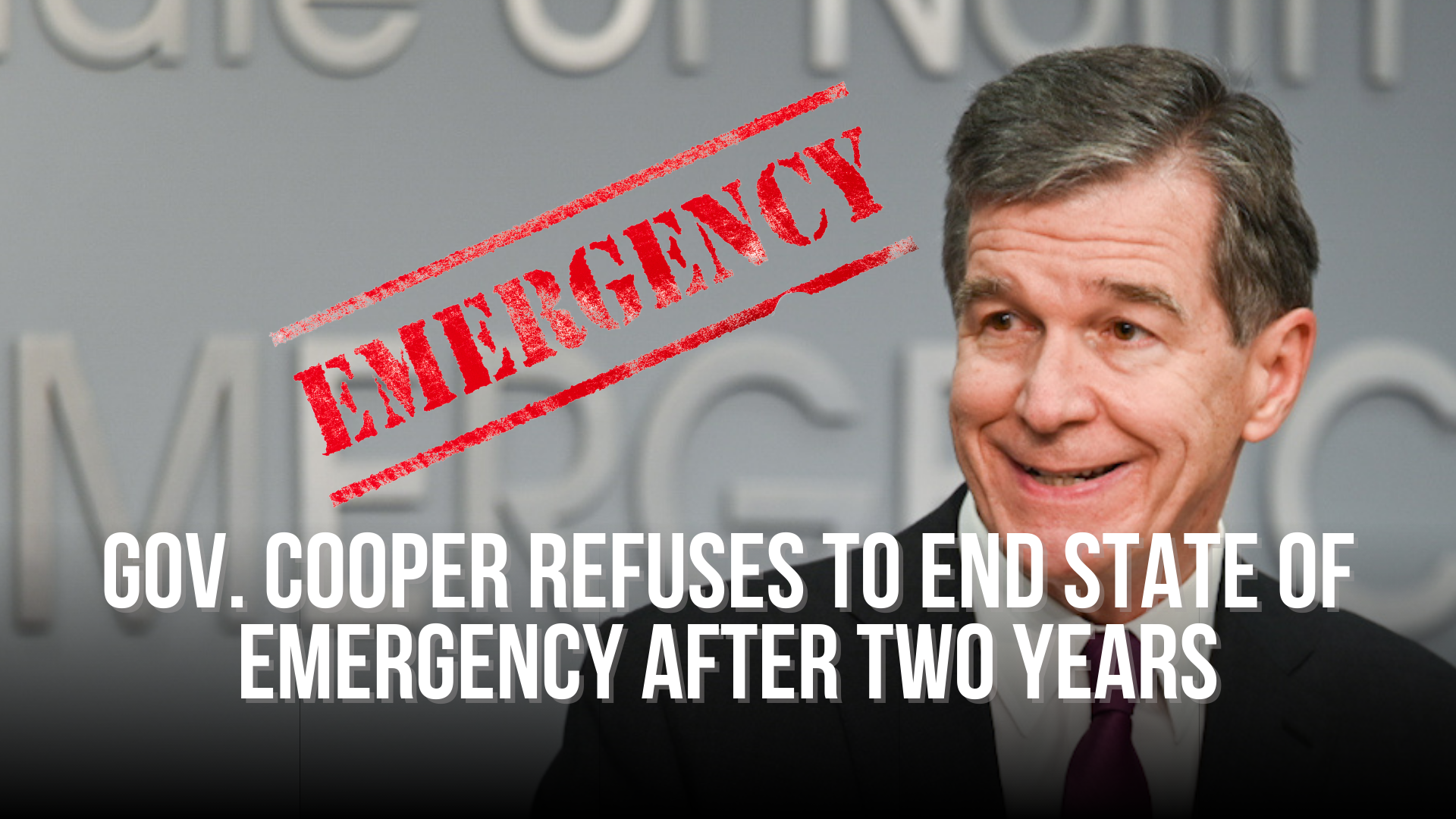Gov. Cooper Refuses to End State of Emergency After Two Years
With few restrictions left, Gov. Cooper is grasping to keep his emergency declaration
After two years, it’s no longer an emergency, it’s the status quo
Raleigh, N.C. – For 730 days, Gov. Roy Cooper has kept North Carolina in a “state of emergency” even as COVID-19 restrictions and guidelines have disappeared.
Emergency declarations have historically been used for short durations to address immediate needs, like severe weather. The Emergency Management Act authorizes a single person to take swift action to change policies when the 170-member General Assembly cannot convene quickly.
After 24 months, there is no longer an immediate need to respond to the pandemic.
North Carolina’s COVID-19 metrics, including new case counts, have dwindled in recent weeks to levels we haven't seen in months. The percentage of positive COVID-19 tests dropped to 3.9% as of March 9. Hospitalizations have declined to 1,093, compared to 3,827 a month ago. And the seven-day average of new COVID-19 cases dropped to under 2,000, compared to over 10,000 a month ago.
When the pandemic began public health officials and elected leaders said they would be guided by science and data. Now, Gov. Cooper is ignoring the science.
"Two weeks to flatten the curve has turned into two years of Gov. Cooper twisting state law and executive authority to suit his whims,” Senate Leader Phil Berger (R-Rockingham) said. “It’s time for Gov. Cooper to acknowledge what everyone else has: This is no longer an emergency."
This week Gov. Cooper’s office claimed the reason the state of emergency hasn’t ended is because he wants to work with the legislature to “pass laws that serve the same purpose.”
The General Assembly has been in session since January 2021 and could have worked with Gov. Cooper to address his concerns. Yet, we have not heard from him on specific measures relating to his emergency declaration.
Gov. Cooper needs to quit making excuses and end the state of emergency now.



